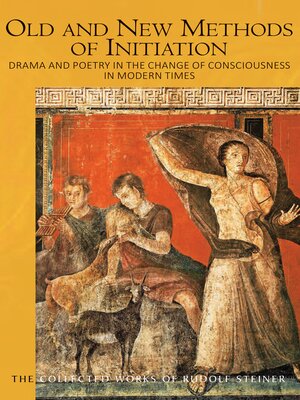Old and New Methods of Initiation
ebook ∣ Drama and Poetry in the Change of Consciousness in Modern Times · The Collected Works of Rudolf Steiner
By Rudolf Steiner

Sign up to save your library
With an OverDrive account, you can save your favorite libraries for at-a-glance information about availability. Find out more about OverDrive accounts.
Find this title in Libby, the library reading app by OverDrive.



Search for a digital library with this title
Title found at these libraries:
| Library Name | Distance |
|---|---|
| Loading... |
What are the key differences between the contemporary spiritual path and that of the ancient mysteries? With remarkable clarity and insight, Rudolf Steiner throws new light on the contrasting methods of initiation in the ancient and modern day. The old mysteries worked to transform the physical body – 'the brain on the one hand, and the rest of the organism on the other' – whereas modern initiation 'transforms the element of spirit and soul, strengthening it with regard to the thought aspect on the one hand, and the will aspect on the other...' These wide-ranging lectures additionally cover topics that include: the working of Lucifer and Ahriman in the human being; the relationship of the individual to the Folk Spirit; the development of religious life, particularly with reference to the pagan Old Testament streams; and the role of Imagination, Inspiration and Intuition in modern life. The final lectures examine the impulse of freedom behind the work of Goethe and Schiller, drawing connections with Shakespeare and the French Revolution. An overarching theme is the significance of the transition between cultural epochs and the importance of freeing ourselves from the intellectualism of our age through the spiritual quality of Imaginative consciousness. This new edition features an introduction by Margaret Jonas, notes and an index. Fourteen lectures, Dornach, Mannheim & Breslau, Jan.–March 1922, GA 210







